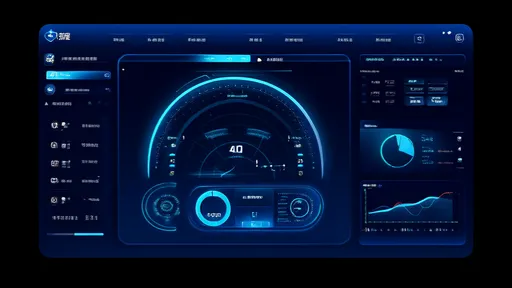For millions of travelers in China, securing train tickets during peak seasons can feel like winning the lottery. The official 12306 booking system often sees high-demand routes sell out within minutes, leaving many to rely on its elusive "waitlist" feature. This is where third-party monitoring tools come into play – and recently, a clever WeChat notification script has gained popularity among tech-savvy commuters.
The concept seems simple at first glance: a script that automatically monitors 12306's waitlist status and pushes real-time alerts to WeChat. But beneath this convenience lies a fascinating intersection of reverse engineering, cloud automation, and the constant cat-and-mouse game between unofficial tools and China's railway ticketing system. Unlike commercial solutions that charge premium fees, this open-source alternative represents the DIY spirit of China's programmer community.
How the monitoring works reveals some ingenious engineering. The script doesn't directly interact with 12306's frontend, which would violate terms of service. Instead, it mimics mobile API calls through carefully crafted HTTP requests, checking for waitlist status updates every 30-60 seconds. When a slot opens up, it triggers a WeChat notification via official enterprise account APIs – a legal workaround since WeChat permits business notifications.
Setting up the system requires more technical knowledge than your average app download. Users need to deploy the Python script on cloud servers (Alibaba Cloud or Tencent Cloud work best), configure authentication tokens from both 12306 and WeChat, and set up proper cron jobs. The GitHub repository provides detailed instructions, but warns users against excessive query frequencies that might trigger IP bans from 12306's anti-scraping mechanisms.
Privacy considerations have sparked lively debates in developer forums. While the script processes sensitive data (12306 login credentials and travel details), its open-source nature allows security audits. Most users opt for temporary "disposable" 12306 accounts to mitigate risks. Surprisingly, some railway enthusiasts have modified the code to track ticket release patterns, creating predictive models for optimal booking times.
The script's popularity highlights systemic pressures in China's transport infrastructure. During Lunar New Year, college students and migrant workers – two groups with limited travel flexibility – have become its primary users. One Guangzhou-based programmer told tech forums: "It's not about cutting in line, but about getting fair access when others cancel reservations. The official app's notification delay can cost you the last seat."
Legal experts caution that while the tool itself operates in a gray area, misuse could violate cybersecurity laws. The script's maintainers have implemented rate-limiting and explicitly prohibit commercial use. 12306 has neither endorsed nor banned such tools publicly, though its 2023 system upgrades included more sophisticated bot detection.
For non-technical users, the learning curve remains steep. Those unwilling to tinker with code can find pre-configured Docker images or paid "managed services" from some developers – though these options sacrifice transparency. The project's documentation emphasizes self-reliance, jokingly stating: "If you can't set up Python environment, maybe you shouldn't automate your train tickets."
Beyond practical utility, the script represents a cultural phenomenon. In WeChat groups dedicated to "ticket hunting," users share customized versions with enhanced features – SMS fallback notifications, multi-account support, even integration with smart home devices. One creative adaptation flashes smart lights red when tickets become available, proving that necessity truly is the mother of invention.
As China's high-speed rail network expands, the digital ecosystem around it grows equally sophisticated. While 12306 has improved its official services yearly, third-party tools like this WeChat notifier fill niche demands. Their existence prompts bigger questions about how public services can better leverage technology – perhaps through official API partnerships with platforms like WeChat, rather than leaving citizens to hack together solutions.
The script's future remains uncertain. Upcoming 12306 system upgrades or WeChat API changes could break its functionality overnight. Yet for now, it stands as a testament to grassroots innovation within constraints – a digital lifehack helping ordinary people navigate one of the world's most complex transportation systems.

By /Aug 22, 2025

By /Aug 22, 2025

By /Aug 22, 2025

By /Aug 13, 2025

By /Aug 13, 2025

By /Aug 13, 2025

By /Aug 13, 2025

By /Aug 13, 2025

By /Aug 13, 2025

By /Aug 13, 2025

By /Aug 13, 2025

By /Aug 13, 2025

By /Aug 13, 2025

By /Aug 13, 2025

By /Aug 13, 2025

By /Aug 13, 2025

By /Aug 13, 2025

By /Aug 13, 2025

By /Aug 13, 2025

By /Aug 13, 2025